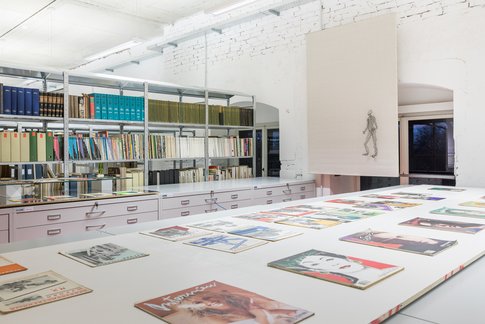Dresden, Germany
 (c) all pictures in this article SKD/ David Pinzer
(c) all pictures in this article SKD/ David Pinzer
https://archiv-der-avantgarden.skd.museum/
Marcelo Rezende from the Archiv der Avantgarden joins us for the onAIRISM - challenges and transitions conference in November 2021.
Artworks, design objects, furniture, drawings, posters, architectural plans - the Archiv der Avantgarden (AdA) is a safehold for material from the most divergent artistic movements of the 20th century avant-garde. Comprising approximately 1,5 million objects and documents, the collection is the only one of its kind worldwide in terms of both scope and structure.
Its cornerstone is Egidio Marzona’s collection, which was donated to the Staatliche Kunstsammlungen Dresden in December 2016. Housed in the Japanisches Palais on an interim basis, it is set to relocate to its own permanent location in the nearby Blockhaus in a few years’ time. Researchers and other interested parties are welcome to visit the archive. (...)
Taking up the Marzona collection’s international and interdisciplinary approach, the AdA in Dresden functions as an open archive: transparent and accessible, it serves as a forum for dialogue and discussion. A lively space affording sensuous experiences, the archive is also the place where it is possible to come into contact with objects and documents, as well as creating a space – physically and figuratively – that promotes communication.

The program of the Ada in Dresden will be of particular interest to visitors based in Dresden and environs, offering workshops, discursive events such as lectures, readings, round tables, and public discussions, as well as exhibitions. Scientific research will be presented in an accessible and easily understood form, and selected objects from the archives are to be showcased and discussed within the scope of the Object Talks.
Artists are invited to present ideas and projects as they interact with the public and the archive. Thus, a democratic space is called to life, one whose objective is to remain vibrant, fresh, and always evolving. A place for visions and impressions, for reflection and discussion. In short, a permanent home for the avant-garde.


